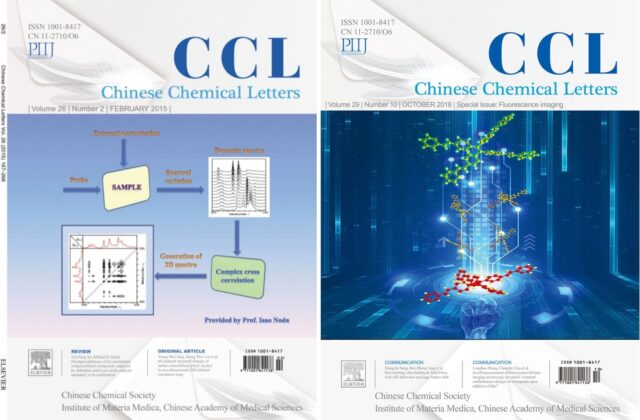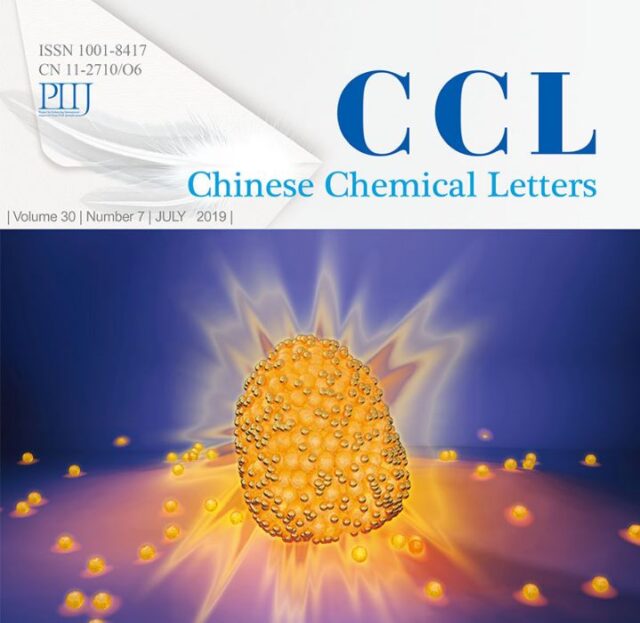
UPDATE, JULY 31, 2015: A response from the journal’s editors is appended at the end of this blog post.
There’s a major, China-based scholarly society journal that has hidden author fees, but the fees will be refunded if authors cite their papers six times within the two years after they’re published, according to emails from the publisher. This is an example of a coercive citation.
The journal is Chinese Chemical Letters, the official organ of the Chinese Chemical Society.

Here’s the story:
I got an email from two researchers in Iran. They successfully submitted a paper to the journal, but upon accepting the paper, the journal informed them they would have to pay an author fee of $500.
The authors were surprised because the journal’s website makes no mention of any author fee. It’s not an open-access journal — it’s a subscription journal.
Lacking funds to pay the fee, the Iranian authors emailed the Chinese Chemical Letters editorial office and asked to withdraw the submission. Then they received a surprise.
The editorial office responded with this message:
From: 中国化学快报 <cclbj@imm.ac.cn>;
To: Zahra Azizi <ZahraAzizi@yahoo.com>;
Subject: 答复: Author query CCLET CCLET-D-15-00032
Sent: Mon, Mar 23, 2015 12:49:52 AM
Dear Zahra Azizi,
If the manuscript has been cited more than six times (including six times) within two years after publication, this fee will be waived upon a request from the principal author (providing the cited information in detail.
So please make your article be cited more times, we can waive the fee.
Editorial office of CCL
[The email seems to mix up the terms waived and refunded.]So, this evidence shows the journal is providing a monetary incentive to authors to subsequently cite their articles published in Chinese Chemical Letters, citations that would likely help boost the journal’s impact factor.
This is an example of a coercive citation. I think it is unethical because it perverts the scholarly practice of citing earlier research.
To confirm the policy, I sent an email to the journal asking how much it costs to publish there. I received a reply the next day that matches the message the Iranian scholars received.
The journal’s current impact factor is 1.587, but I call this metric into question. It may have been artificially elevated by the journal’s practice of coercive citation.
The Chinese Chemical Society should apologize to scholars for this unethical practice and terminate it immediately. If the journal charges an author fee, the fee should be prominently stated on its website.
Response from Elsevier, July 31, 2015

Clarification on the Spreading Rumor of “Enforcing Citation” from Chinese Chemical Letters
According to relevant policies and international practice, Chinese Chemical Letters (CCL) charges publication fee for all manuscripts to be published, ¥260/page for domestic manuscripts and $500/paper for international manuscripts. CCL is always notifying all authors of this policy when the manuscripts are returned for revision along with the comments. Application for waiving off publication fee is generally accepted by CCL.
In order to attract high-quality manuscripts, CCL has always followed the policies of rewarding excellent papers. For example, the publication fee for future manuscripts from the same author will be reduced or completely waived, or other incentives will be given. However, CCL has never forced the authors to cite their manuscripts.
Unfortunately, however, CCL was deeply uneasy about the recent “Enforcing Citation” event from an Iranian author. That matter was totally due to the inappropriate English expression of our newly joined editor. The Iranian author was inquiring related publication fee issue in his e-mail, and the editor mentioned our policy of rewarding highly cited papers as a reply. The editor was unable to describe the actual policy completely but over-interpreted. This carelessness had brought misunderstanding to the author.
In the future, on one hand, we will learn a lesson from this incident, and continue to strengthen the editorial staff training for higher English capability and simplify the policies to make it more concise. On the other hand, we will continue to process all manuscripts equally, adopting the same standard of publication or decision-making, and serving our domestic or international authors with maximum enthusiasm. The collection standards of publication fee will be posted on the website of CCL. The publication fee waiver based on the citations has been eliminated.






